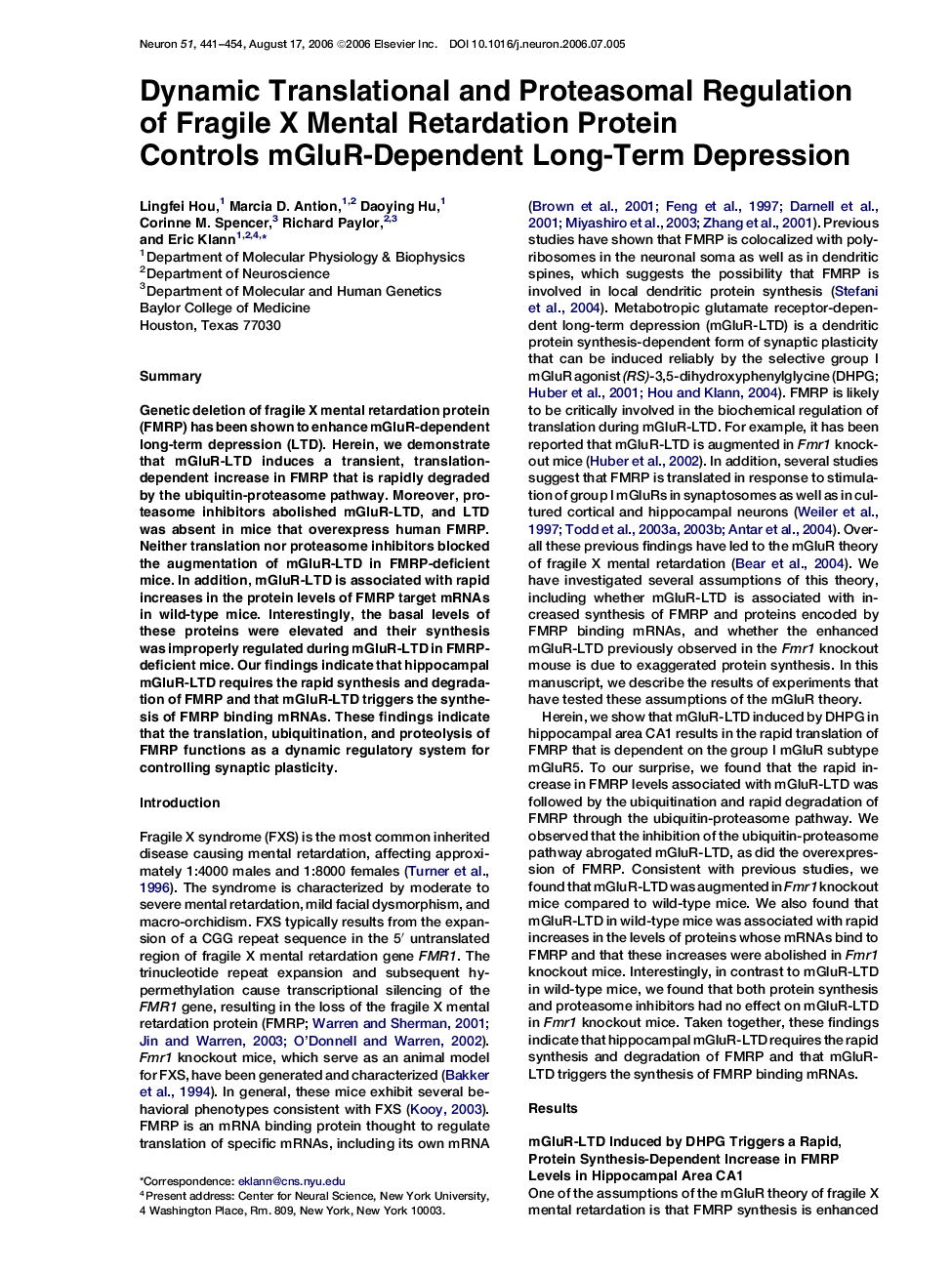| Article ID | Journal | Published Year | Pages | File Type |
|---|---|---|---|---|
| 4322951 | Neuron | 2006 | 14 Pages |
SummaryGenetic deletion of fragile X mental retardation protein (FMRP) has been shown to enhance mGluR-dependent long-term depression (LTD). Herein, we demonstrate that mGluR-LTD induces a transient, translation-dependent increase in FMRP that is rapidly degraded by the ubiquitin-proteasome pathway. Moreover, proteasome inhibitors abolished mGluR-LTD, and LTD was absent in mice that overexpress human FMRP. Neither translation nor proteasome inhibitors blocked the augmentation of mGluR-LTD in FMRP-deficient mice. In addition, mGluR-LTD is associated with rapid increases in the protein levels of FMRP target mRNAs in wild-type mice. Interestingly, the basal levels of these proteins were elevated and their synthesis was improperly regulated during mGluR-LTD in FMRP-deficient mice. Our findings indicate that hippocampal mGluR-LTD requires the rapid synthesis and degradation of FMRP and that mGluR-LTD triggers the synthesis of FMRP binding mRNAs. These findings indicate that the translation, ubiquitination, and proteolysis of FMRP functions as a dynamic regulatory system for controlling synaptic plasticity.
